QuestionI agree with about 98% of what you've said, except that I would never feed Natural Gold. I was curious why you liked it and you answered my questions really well.
The pet food nutritionist I know felt that the Natural Gold food was 'artificially inflating' its protein content with the use of soy products since soy is useless to ferrets, but it raises the overall protein content drastically. Since the ingredients are listed in order of how much of each is in the food, the majority of ingredients past the first half dozen in Natural GOld are chemicals to stabilize the mixture, to keep it crunchy, etc. I guess the idea of all the chemicals (I have no idea what more than half of those ingredients listed are, and I'm sure most ferret owners don't know that information). I like to see ingredients that I don't have to look up in a chemistry book in the foods I choose. All pet foods require some preservatives and chemicals, but it seems to me that Natural Gold is waaay overboard on chemicals and, as my friend said, very artificially inflated protein percentages. I would be interested in what their protein percentages would fall to if the soy was removed from the recipe.
I totally agree with you on the crunchy food being necessary - since,as you stated, we tend not to feed our ferrets a 'natural' diet that would include bones, they really do need some crunch and texture to keep teeth clean and periodontal disease at bay.
The food my friend chose, after a long hard look at all the foods listed on the Northern Ohio Ferret Food List (I tried to get a link for you, but their site appears to be down today - but I *think* that's what it's called), was Totally Ferret.
My pet food nutritionist friend gave me a quick way to choose an 'acceptable' ferret food (and it works for my cat too). He said to look at the first five ingredients listed. Four of the first five should be meat or meat byproducts of some kind. From there, you would start seeing a vegetable protein or two, amino acids, fillers, added vitamins, etc, then preservatives, then possibly a FEW 'chemical book' type preservatives (that the common ferret owner won't recognize what it is) as only the last few ingredients.
My friend is quite well educated with a number of academic awards and specializing in pet food nutrition, so I do put a lot of weight on his opinion. I hesitate to use his name without permission, but you may well know him if you are active in that field.
Thank you so much for clarifying your opinion on the Natural Gold. I don't believe there is anything there that would be harmful in any way to a ferret (although I'm really not sure what most of those chemicals are LOL), so I think it's just a matter of difference in opinion and that a ferret eating Natural Gold certainly isn't suffering.
Personally, however, I think foods that concentrate more on meat protein sources and less chemicals appeal to me more for my ferret. Again, tho, Natural Gold is fairly new on the market and look at all the adrenal cancer ferrets have, so at least we cannot blame the current cancer problems in ferrets on Pretty Pets (makers of Natural Gold). (Now, if we just knew what IS causing it!)
The only *really dangerous* foods on the market for ferrets are the ones that have dehydrated fruits and/or vegetables in them, such as Kaytee Fiesta and a lot of treats from a variety of manufacturers. I learned early as a ferret owner to read labels and be sure there isn't any dehydrated fruits or vegetables in either the food or the treats because of the danger of intestinal blockages.
I was also wondering if you have any good ideas for how to change a ferret from one food to another? A friend of mine is trying to change her ferret to Totally Ferret from a cat food (boooo) she had been feeding, but the ferret is just refusing to eat and eats only the old cat food. I've told her everything I know (mixing the two) but that is obviously not working.
Thanks again for your help!
JCM
-------------------------------------------
The text above is a follow-up to ...
-----Question-----
I have done quite a bit of studying of ferret nutrition and their nutritive requirements. I see that you recommend Natural Gold ferret food, however, ferrets are obligate carnivores - their digestive systems cannot even use a good part of the 50% protein in that food, since it is from vegetable sources (soy, etc). Vegetable proteins go thru a ferret's digestive system unused; wasted. The only protein sources that ferrets systems can use is from meat and meat byproducts according to all the studies I have seen. I have even consulted with a ferret nutritionist about this when Natural Gold first came out and he reassured me that the vegetable proteins are useless to ferrets. So I was just wondering why you recommend a food that contains vegetable protein.
I hope that possibly you will re-evaluate your recommendation of this food. The other foods you recommended were excellent choices, but I hope you will consider dropping this one from your list of preferred foods...or at least consult with a ferret nutritionist for their opinion on vegetable proteins for ferrets.
Thanks for your time and consideration.
-----Answer-----
My actual recommendation is a whole prey diet for ferrets, but since they imprint on food (usually kibble) at a very young age, it becomes hard to transition them to a complete whole prey diet. People feel meat, but not usually whole prey.
Theere is no diet on the market that doesn't use vegetable protein at a binding agent. Kibble doesn't stick with out something to bind it together. Natural Gold uses Potato instead of other high carbohydrate sources and a high carbohydrate diet is linked (by ferret professionals) to insulinoma in ferrets. Natural Gold also has the highest protein percentages. Additionally it is a more brittle kibble which is easier for small ferret teeth to break. There is also a link to kibble and peridontal disease in ferrets.
Most animal nutritionists are either self taught or taught at vet schools in which the pet food industry is heavily pushed as a "complete" diet. Sadly, even ferret professionals agree, that there is not enough ferret specific research currently. I would be interested to know what your ferret nutritionist recommended instead? Personally a lo carb and brittle kibble is the way to go. The only other food on the market that comes close to the right protein requirements and ingredients is Totally Ferrets Baby food (only the baby food) and Innova (which is too new to really know much) and neither offer a more brittle kibble.
I agree completely that ferrets are obligate carnivores (as are cats) and don't absorb much from vegetable proteins, which is also why I do not ever feed sugar, fruit or vegetables as treats - we use chicken or the other ferret foods I mentioned.
Until there is a ferret food on the market that is 100% meat, lo carb, high enough in protein and brittle I will stick to Natural Gold.
Again, please tell me what your nutritionist recommended.
AnswerI have included the complete ingredients (from both web sites) for Natural Gold and Totally ferret. The first 5 ingredients in Totally Ferret include Rice flour (high carb) and Wheat flour followed closley by corn meal plus lots of thoes hard to understand chemical names. Natural Gold includes Potato starch and soybean oil that is the only soy product. Soy has been developed to be a very digestible protein source - certainly easier and more useful than wheat and rice.
Ingredients Chicken by-product meal, rice flour, dried egg product, chicken fat (preserved with mixed tocopherols, a natural source of vitamin E), poultry fat preserved with mixed tocopherols, a natural source of vitamin E), wheat flour, corn meal, herring meal, dried beet pulp, chicken liver meal, dried brewers yeast, lecithin, fish oil (preserved with mixed tocopherols, a natural source of vitamin E), salt, whole ground flax seed, vegetable oil, calcium carbonate, l-lysine (essential amino acid), dl-methionine (essential amino acid), potassium chloride, taurine, l-carnitine, zinc sulfate, zinc proteinate, vitamin E supplement, ferrous sulfate, ascorbic acid (source of vitamin C), manganese sulfate, inositol, niacin supplement, iron proteinate, manganese proteinate, zinc oxide, biotin supplement, thiamine mononitrate (source of vitamin B1), copper sulfate, pyridoxine hydrochloride (source of vitamin B6), copper proteinate, vitamin A supplement, riboflavin supplement (source of vitamin B2), calcium pantothenate, calcium iodate (source of iodine), manganous oxide, vitamin B12 supplement, sodium selenite, vitamin D3 supplement, menadione dimethylpyrimidinol bisulfite (source of vitamin K activity), folic acid.
INGREDIENTS:
Chicken Meal, Pork Protein Concentrate, Potato Starch, Poultry Fat, Soybean Oil, Grape Seed Oil, Oat Bran, Fish Oil, Salt, Coconut Oil, DL Methionine, Sodium Bentonite, Yeast, Yeast Extract, Chicory Extract, Taurine, Saccharomyces cerevisiae cell wall fractions, Brewers Dried Yeast, Calcium Carbonate, Fructose, Choline Chloride, Vitamin E Supplement, Betaine Anhydrous, Ferrous Sulfate, Magnesium Oxide, Zinc Oxide, Vitamin B12 Supplement, Niacinamide, D-Biotin, Manganous Oxide, Vitamin A Acetate, Thiamine Mononitrate, Folic Acid, Green Tea Extract, Mixed Tocopherols, Rosemary Extract, Copper Sulfate, Riboflavin, Calcium Pantothenate, Sodium Selenite, Pyridoxine Hydrochloride, Calcium Iodate, Calcium Propionate, Menadione Sodium Bisulfite Complex (Source of Vitamin K), D-Activated Animal Sterol (Source of Vitamin D3), Cobalt Sulfate, Saccharomyces cerevisiae fermentation solubles, Lactobacillus Acidophilus Fermentation Product Dehydrated, Lactobacillus Casei Fermentation Product Dehydrated, Bifido Bacterium Thermophilum Fermentation Product Dehydrated, Enterococcus Faecium Fermentation Product Dehydrated, Cornstarch, Dried aspergillus niger fermentation extract, Dried bacillus subtilis fermentation extract, Yucca Schidigera Extract, pediococcus acidilactici, Dried aspergillus oryzae fermentiation product.
Again, if I recommed Totally Ferret it is only their Baby Food. I have met Dr. Tom Willard from Totally ferret and he knows of the ferret communities concerns with kibble that is too hard and a high carb protein source. Hopefully they will soon adject their regular food. The harder kibble are causing peridontal disease in ferrets, not helping.
You should research the findings of Bob Church regarding peridontal disease as well as ferret nutrition. There is probably a ton on internet stuff from him and he is always willing to come to ferret clubs to talk.
Hopefully your nutritionist will be able to publish some much needed ferret specific food studies. There aren't any out there not sponsored by pet food companies.
Regarding switching food - I have always simply removed the old food and replaced it with the new food. That way they can't pick out the stuff they like.

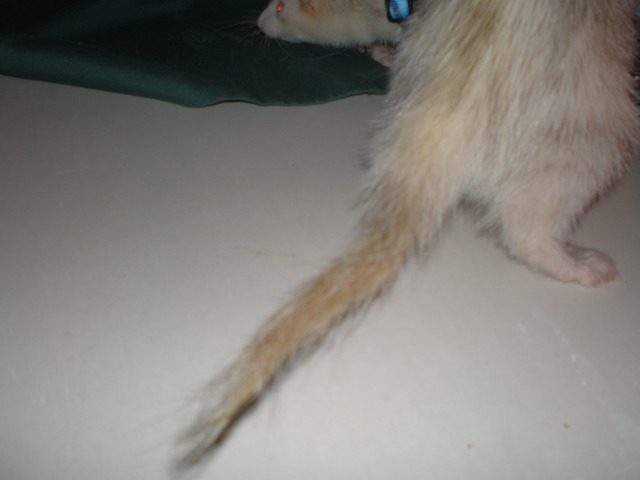 ferret stress
QuestionQUESTION: i just got a ferret and he is older i
ferret stress
QuestionQUESTION: i just got a ferret and he is older i
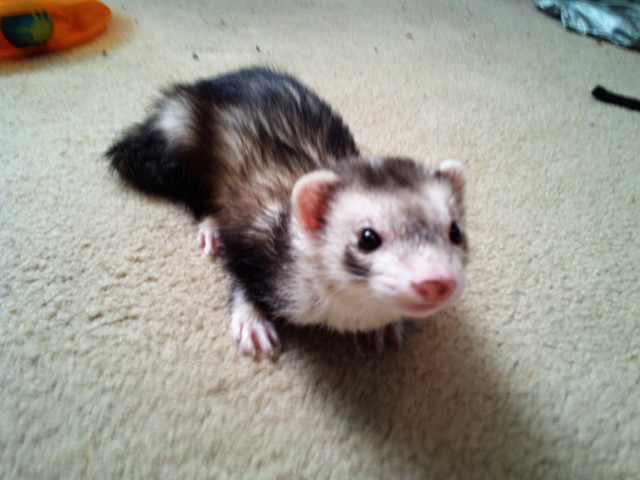 Female Behavior Issues
QuestionQUESTION: I have had Ryoko, my female ferret, f
Female Behavior Issues
QuestionQUESTION: I have had Ryoko, my female ferret, f
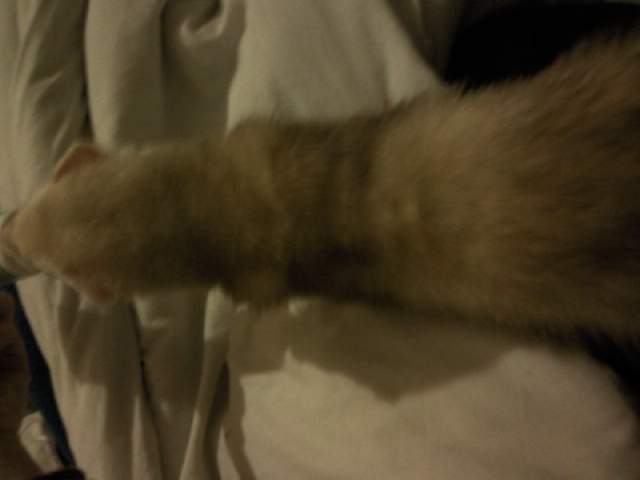 Fat boy with lumpy neck
QuestionOdins neck
QUESTION: Hi,
My 9 month old
Fat boy with lumpy neck
QuestionOdins neck
QUESTION: Hi,
My 9 month old
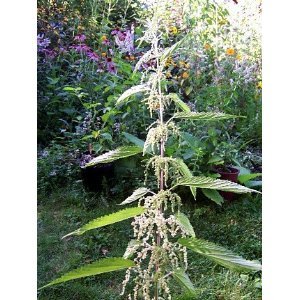 Poisonous outdoor plants.
QuestionHi, Cindy. I had a question thats been spinning
Poisonous outdoor plants.
QuestionHi, Cindy. I had a question thats been spinning
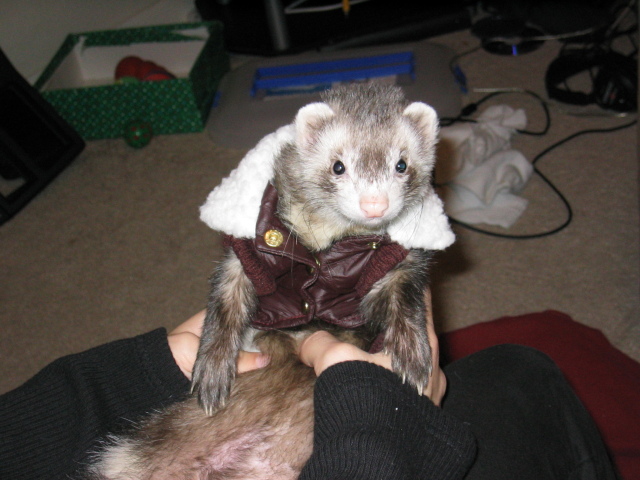 Eros
Question
Eros
Hello. My ferret, Eros, just turned
Eros
Question
Eros
Hello. My ferret, Eros, just turned